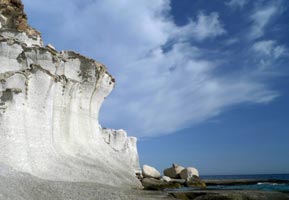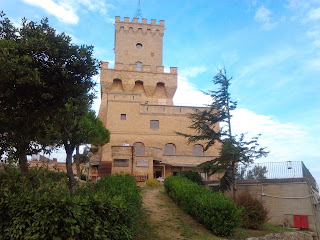Visit to the sea platform Posidonia , in collaboration with A.R.T.A. and the Harbour Patrol of Pescara.
BLOG DELL'ISTITUTO COMPRENSIVO STATALE "DANTE ALIGHIERI" BLOG DELL'ISTITUTO COMPRENSIVO STATALE "DA
Thursday, December 26, 2013
23 OCTOBER 2013
9.00 am
Visit to the sea platform Posidonia , in collaboration with A.R.T.A. and the Harbour Patrol of Pescara.
Visit to the sea platform Posidonia , in collaboration with A.R.T.A. and the Harbour Patrol of Pescara.
Tuesday, December 24, 2013
Saturday, December 21, 2013
Monday, December 2, 2013
Monday, November 18, 2013
The students visit Pescara beach, the bridge and the WWF Oasis of Fratino Minore for their studies on biodiversity
Saturday, November 2, 2013
22.10.2013 -3.30 pm Work session at school.Ceremony at Spoltore City Hall .
22.10.2013 - 3.30 pm
Work session at school, Spoltore.
All delegations present their presentations.
6.30 pm Welcome Ceremony at Spoltore City Hall, greetings from the Mayor and the authorities, presentation of the delegations, welcome concert.
All delegations present their presentations.
FOTO GALLERY
Thursday, October 31, 2013
22.10.2013 A day in the open air
9.00 am:
Extemporaneous painting „en plein air“ at the Marina di Pescara, guided visit to the headquarters of the Navy League.
A day in the open air as the Impressionists between sand, sky, sea, river and bridges. A sunny day to do a full immersion in our corners of beach most characteristic indiment
Prof.ssa Paola Pacifici
Visit to the harbour area, Bridge on the Sea, the beach. Lunch buffet.
Comenius Company walking on the bridge
Saturday, October 26, 2013
Monday, October 21, 2013
NICE DINNER
WELCOMING to DELEGATIONS from
PORTUGAL,BULGARIA,GREECE,ROMANIA, and FRANCE.
Italian headmaster Bruno D'Anteo,with Annachiara and Flora teachers had a nice DINNER in Sacro Cuore square restaurant.
Than, we had a relax walking on Corso Umberto until Salotto Square and Cascella Navy on the Beach.
Saturday, October 19, 2013
Thursday, October 10, 2013
WWF per un mediterraneo di qualità
 Il Mediterraneo è un patrimonio naturale e culturale unico e prezioso, volano della nostra economia. Eppure, è sottoposto a molteplici pressioni e impatti antropici.
Il Mediterraneo è un patrimonio naturale e culturale unico e prezioso, volano della nostra economia. Eppure, è sottoposto a molteplici pressioni e impatti antropici.Il WWF Italia insieme al network WWF in Mediterraneo ha lanciato la Mediterranean Initiativeper mantenere nel tempo un “Mediterraneo di qualità”, arrestandone il degrado e proteggendo la sua biodiversità grazie alla gestione sostenibile di ambiente e risorse.Continua...
(24-06-2013)
IL PANDA SULLE NAVI SCUOLA PER UN MEDITERRANEO DI QUALITÀ
IL PANDA SULLE NAVI SCUOLA PER UN MEDITERRANEO DI QUALITÀ
Edizione Il Centro di Pescara
Da Pescara alla Bretagna il mare visto dagli studenti
L’istituto Dante Alighieri di Spoltore capofila del progetto europeo Comenius che prevede lo scambio di visite per osservare i rispettivi ambienti marini
|
SPOLTORE. L’Istituto comprensivo Dante Alighieri di Spoltore è capofila di un importante progetto europeo Comenius.
È dal mare, dal nostro mare Adriatico, che nasce tutto, ed è proprio da qui che è iniziato il progetto Mare nostrum, ideato dai docenti della scuola Alighieri di Spoltore e realizzato da elementari e medie nell’ambito della collaborazione con una serie di scuole bulgare, francesi, portoghesi, rumene e greche.
Si tratta di un modo per imparare a conoscere e a tutelare l’ecosistema marino, senza trascurare le problematiche legate all’inquinamento: uno studio delle scienze sul campo, insomma. «Il tutto è iniziato con alcuni prelievi effettuati nell’area di mare nei pressi della Madonnina a Pescara», spiega la docente referente, Laura Caronna, «i ragazzi hanno raccolto campioni di acqua, conchiglie e piante che analizzeranno in classe».
«In seguito», va avanti, «tra il 21 e 25 ottobre ospiteranno gli studenti stranieri che arriveranno qui per osservare il nostro mare da vicino e continuare il progetto, ovviamente, più in là, anche noi andremo da loro per conoscere il loro mare, saremo ospitati in Bretagna. La scuola di cui siamo partner, infatti, è a Brest».
Il Comenius è un macroprogetto che si occupa di partenariato europeo tra scuole di ogni ordine e grado, è l’Unione Europea a finanziare gli scambi tra gli istituti che vi aderiscono. Ogni struttura ha una corrispondente struttura partner e può proporre un suo progetto di studio, legato a una delle discipline scolastiche presenti.
Le scuole che arriveranno questo mese dalla Bretagna visiteranno l’area marina protetta della Torre di Cerrano, e grazie alla Capitaneria avranno modo di fare un sopralluogo su una piattaforma in mare e, infine, con la collaborazione dell’Arta, studieranno come si comportano le acque nei confronti dell’inquinamento. Il progetto Mare nostrum, che durerà due anni, si concluderà nel 2015 con la creazione di un sito internet che ospiterà tutti i lavori realizzati dai ragazzi.
«È un progetto che ha una funzione strategica per l’Istituto comprensivo Dante Alighieri di Spoltore», dichiara il dirigente scolastico Bruno D’Anteo, «la nostra scuola punta molto sullo sviluppo della dimensione europea dell’istruzione, abbiamo una lunga tradizione di Comenius, scambi culturali e assistentati linguistici. È importante per noi che i nostri ragazzi scoprano dal vivo, con l’esperienza diretta, la dimensione culturale di altri Paesi».
Monday, September 30, 2013
Marine environment:
Safeguarding Mediterranean marine biodiversity
The Mediterranean is an enclosed sea with the world's second highest percentage of endemic species, including the Posidonia sea grass and the critically endangered Mediterranean monk seal.
Species also include 28 cetaceans, the 100-million year old loggerhead turtle, and the commercially important blue-fin tuna and swordfish.
Currently, less than 1% of the Mediterranean Sea is protected.
Currently, less than 1% of the Mediterranean Sea is protected.
We are working to establish marine and coastal protected areas to protect the most important regions for biodiversity. We promote fisheries management systems which do not adversely affect marine productivity. We also try to ensure that measures against pollution agreed in international conventions, such as the Barcelona Convention, are endorsed and implemented.
WWF Mediterranean works at a pan-Mediterranean level, and also focuses efforts on marine regions in Croatia , Libya , Morocco , Tunisia and Turkey.
Host to 18 species cetaceans...
The Mediterranean hosts several endangered marine species:- the monk seal (Monachus monachus), of which about 350 - 400 now survive in the world.
- the green turtle (Chelonia mydas) and the 100-million year old loggerhead turtle (Caretta caretta), which nest on Mediterranean beaches.
- 18 cetacean species, of which seven can be observed throughout the year: the pilot whale, fin whale, sperm whale, common dolphin, striped dolphin, bottlenose dolphin and the Risso's dolphin.
- the endemic sea-grass Posidonia oceanica , which plays a crucial role in coast protection by acting as a buffer to currents and waves.
The balance of life
The Mediterranean Sea intricately links humans and nature. The rocky sea bottoms anchor algae and invertebrates like corals, molluscs and crustaceans. They act as refuge, feeding and spawning grounds for many species of fish. These fish act as a source of food and/or livelihood for the 150 million resident population of the Mediterranean coasts.
The Mediterranean Sea is also an important commercial fishing ground. Of the 900 fish species found in the Mediterranean, 100 are commercially exploited. Some of these species have a high market value.
The spectacular coastal landscapes and mild Mediterranean climate attract enormous tourist activity from which local communities benefit too.
The Mediterranean Sea intricately links humans and nature. The rocky sea bottoms anchor algae and invertebrates like corals, molluscs and crustaceans. They act as refuge, feeding and spawning grounds for many species of fish. These fish act as a source of food and/or livelihood for the 150 million resident population of the Mediterranean coasts.
The Mediterranean Sea is also an important commercial fishing ground. Of the 900 fish species found in the Mediterranean, 100 are commercially exploited. Some of these species have a high market value.
The spectacular coastal landscapes and mild Mediterranean climate attract enormous tourist activity from which local communities benefit too.
But these resources are not limitless, and overexploitation could tilt the balance of life irremediably.
Subscribe to:
Comments (Atom)



























